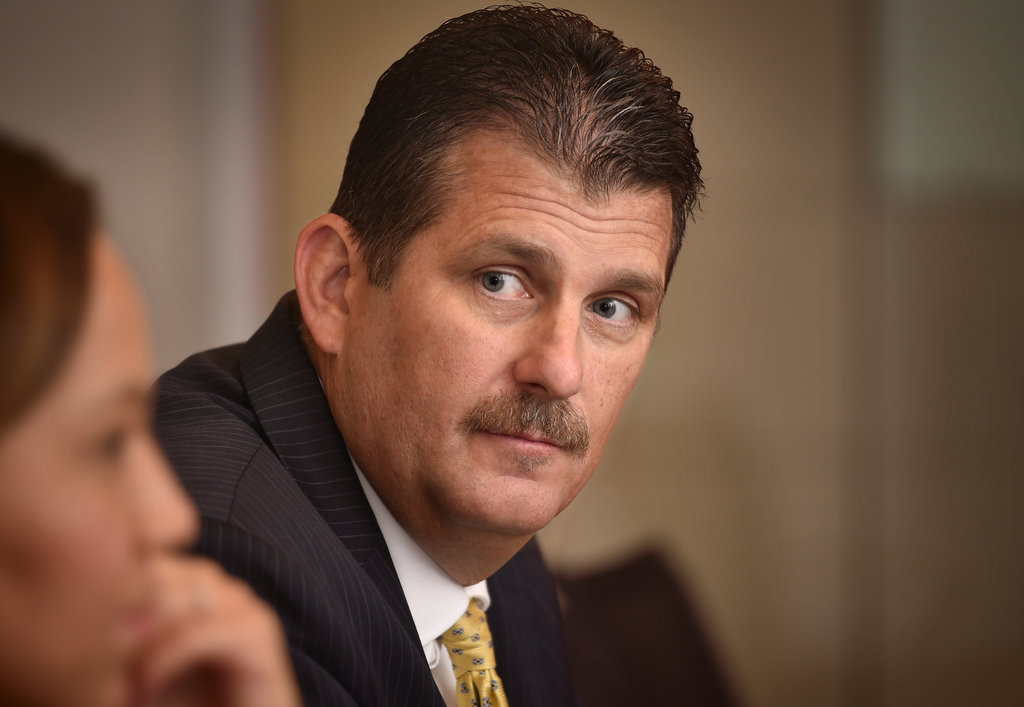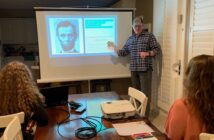Some cases – even those involving homicides – are simple and straightforward.
Some are not.
“It’s actually a pretty complicated case,” said Westminster Homicide Detective James Wilson of a case that dates to a 911 call to dispatch on May 22, 2014.
The call, made at 10:22 a.m. by the victim’s wife, was regarding Adrian Zapata, 58 at the time of his death, found bludgeoned several times in the head and stabbed multiple times in the neck while sleeping in their Westminster apartment, Wilson said.
“We couldn’t find any motive for someone to kill him,” Wilson said. “Everybody liked the victim … he had no enemies.”
The home was ransacked as if the perpetrator was looking for something, but the only thing of value missing was his cell phone, Wilson said.
After interviewing the man’s friends and coworkers at the hospital where he worked, however, detectives discovered some inconsistencies in what Zapata’s wife, Olga Vasquez-Collazos, told them.
Vasquez-Collazos was arrested on Nov. 25, 2014, but the district attorney’s office did not file the case and she was released, Wilson said.

Westminster Police Det. James Wilson talks about a 2014 homicide case with recent arrests and extradition of suspects from Peru.
Photo by Steven Georges/Behind the Badge
But the case was far from over.
“It was a very time-consuming investigation,” Wilson said. “I think this one was more complicated because there were no eye witnesses. There was no evidence on the scene linking them to it.”
Whereas many homicides might have a witness, some video footage of a suspect vehicle, or a fingerprint somewhere near the crime scene, for example, that wasn’t the case here.
“There was nothing in this one,” said Homicide Detective Norma Vasquez-Phan, who also worked the case.
In addition to Wilson and Vasquez-Phan, the entire detective bureau and even former detectives now in patrol came in to assist.
The detectives suspected Vasquez-Collazos’ involvement in her husband’s death but needed more evidence. The information-gathering involved physical surveillance, computer forensics, cell phone mapping, social media account analysis, interviews, and search warrants.
“We take all that information and look for inconsistencies,” Wilson said. “There’s so much information that we learned. … When you put it all down … it kind of paints a picture.”
With at least 20 full binders of reports and evidence (“A lot of those binders have CDs in them with thousands of documents in them,” Wilson said) the picture that developed involved not only Vasquez-Collazos, but Robert Rafael Saavedra, a Peruvian citizen visiting the United States at the time of Zapata’s death.
Wilson said Saavedra was romantically involved with Vasquez-Collazos.
He said Zapata, who was born in Peru, became a U.S. citizen long before meeting Vasquez-Collazos, who was 20 years younger than Zapata. Zapata had a son from his previous marriage and was divorced when he met Vasquez-Collazos while visiting Peru, Wilson said.
“They got married in September of 2011,” Wilson said.
She had two children from a previous relationship, which Zapata sponsored to bring to the U.S., he said.
Vasquez-Collazos and her children arrived to the U.S. in April 2013.
During the investigation, the detectives learned that Zapata had a life insurance policy and also owned a condominium unit in Peru, Wilson said.
Around the time of her husband’s death, Vasquez-Collazos was working at a restaurant in Orange and Saavedra was staying with friends in Van Nuys. On the day of Zapata’s death, Vasquez-Collazos was not in the apartment she shared with her husband, and the detectives were able to confirm her alibi.
“We think that the homicide happened minutes after she left,” Wilson said.
Even though the detectives don’t believe Vasquez-Collazos was home at the time of her husband’s death, they do suspect her involvement, along with Saavedra, Wilson said.
In 2017, Westminster Police Department detectives obtained a warrant for Saavedra’s arrest.
“We tracked him to Canada,” Wilson said.
Saavedra had requested asylum while in Canada, according to Wilson. But once the Canadian government learned Saavedra was a suspect in a homicide case in the U.S., he was denied his asylum claim and removed from the country, Wilson said.
Saavedra was sent to Peru, where Interpol arrested him on Oct. 10, 2017. As part of the extradition process, the United States Marshals Service flew to Peru and picked up Saavedra to fly him to Texas, where Westminster Police Department detectives picked him up on March 15, 2019.
On that same day, Vasquez-Collazos returned from Peru and landed at Los Angeles International Airport, where she was arrested by Westminster police detectives.
Wilson said part of what extended the length of the case was the extradition process.
“It’s kind of a long process where we have to present our evidence to their government,” he said. “Once we get our warrant issued, we present it to the state department, the state department presents it to their government.”
The Orange County District Attorney’s Office has filed charges on both Vasquez-Collazos and Saavedra, who are currently in custody awaiting preliminary hearings, Wilson said.
“We couldn’t have done it without the help of the bureau,” Vasquez-Phan said. “It wasn’t just during regular business hours … it took weekends and it took nights.”
 Behind the Badge
Behind the Badge



